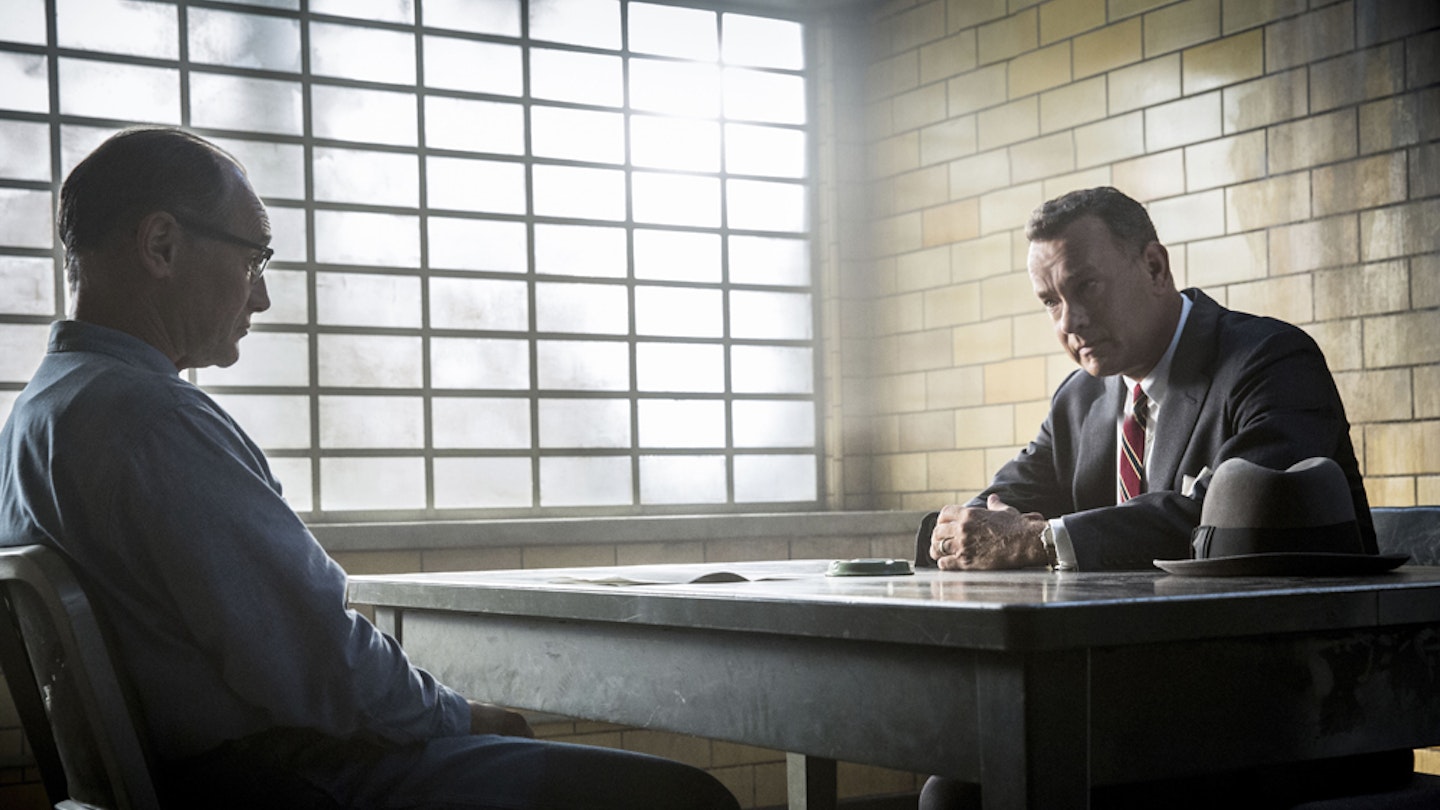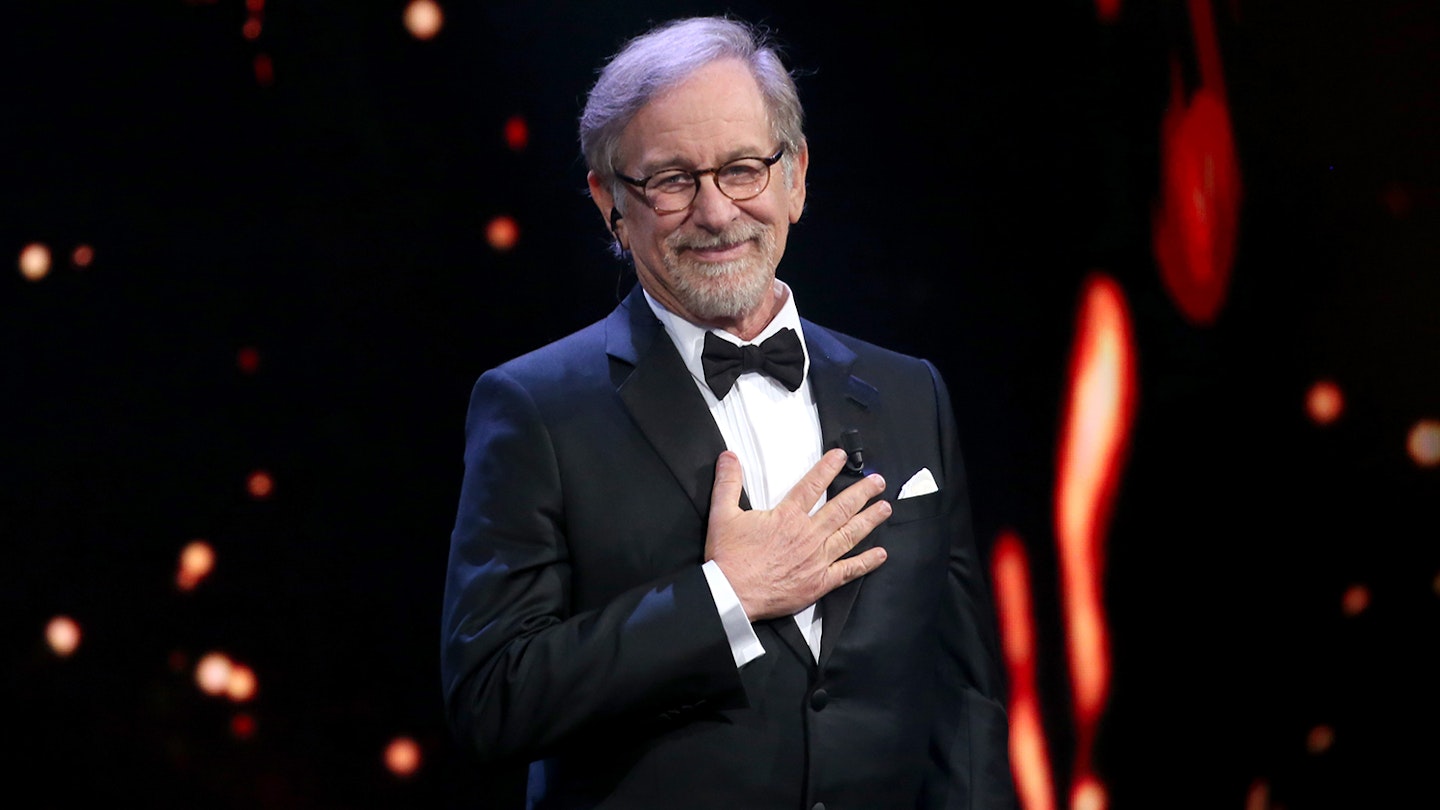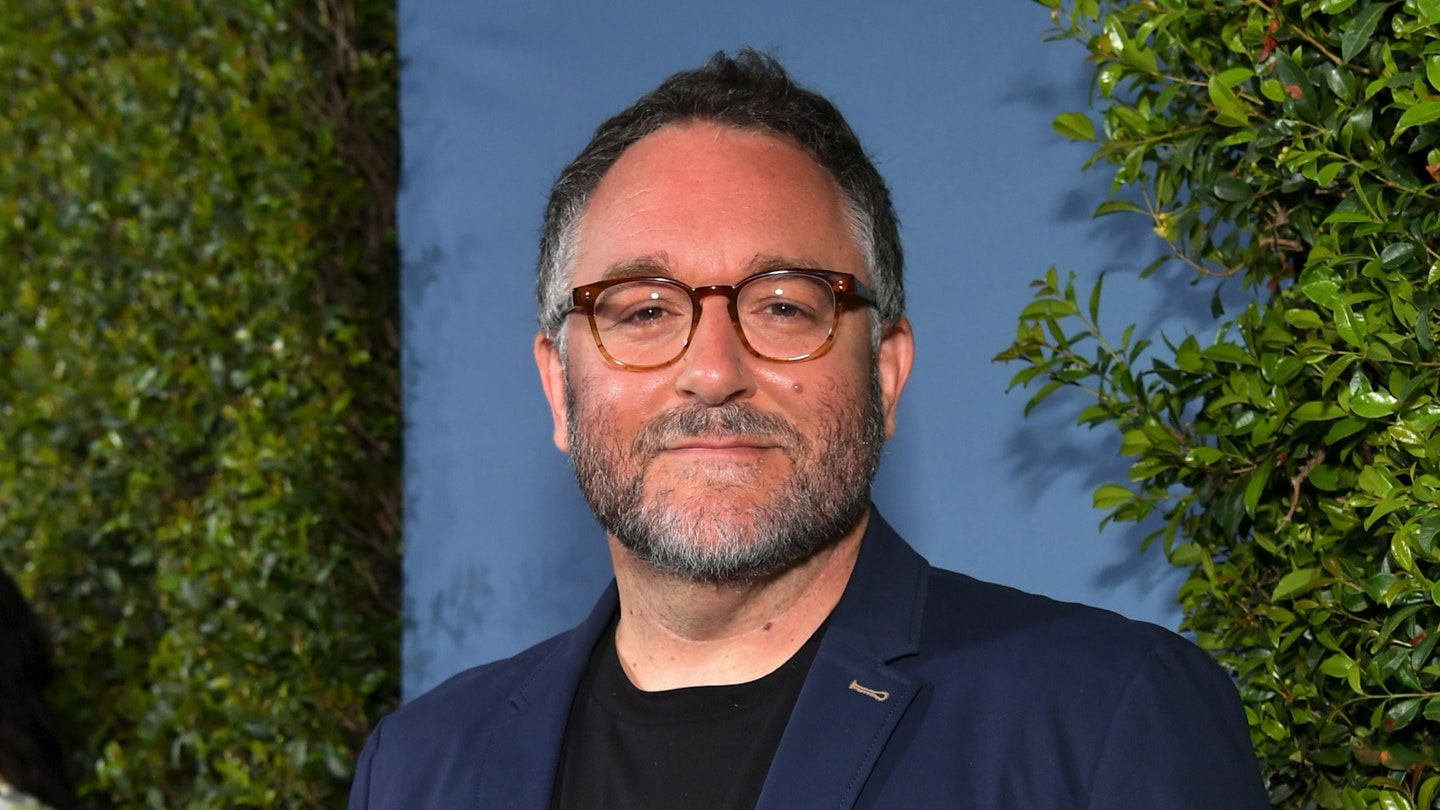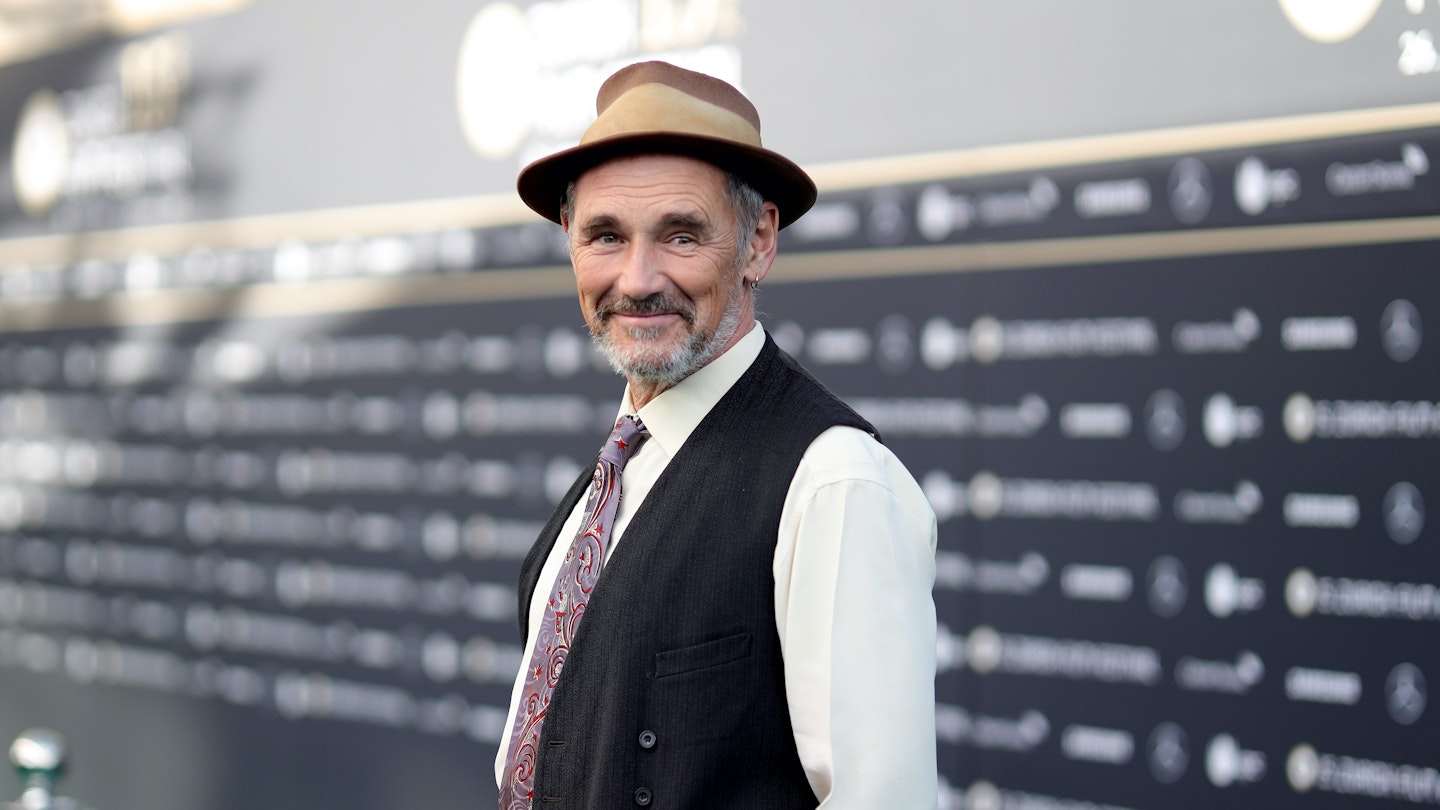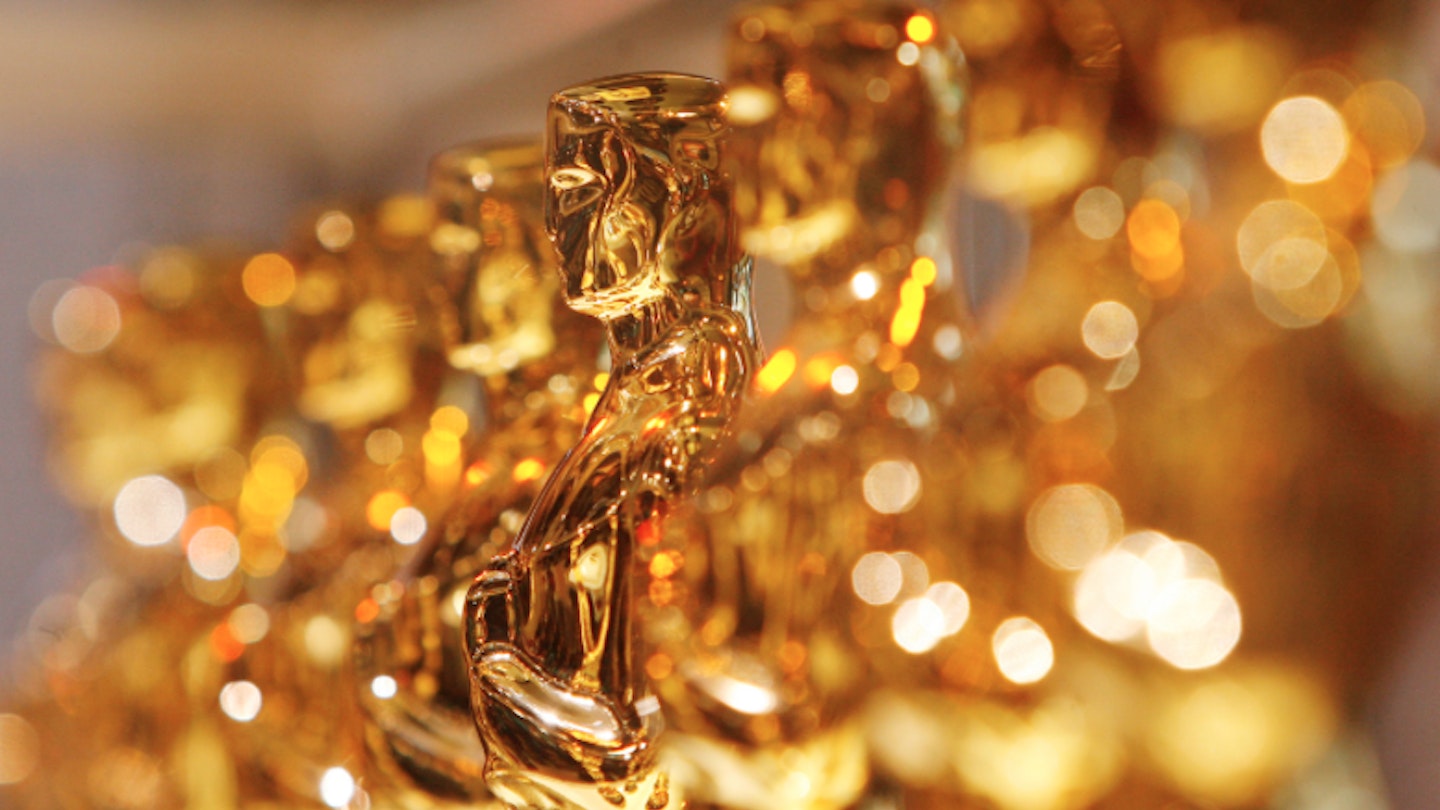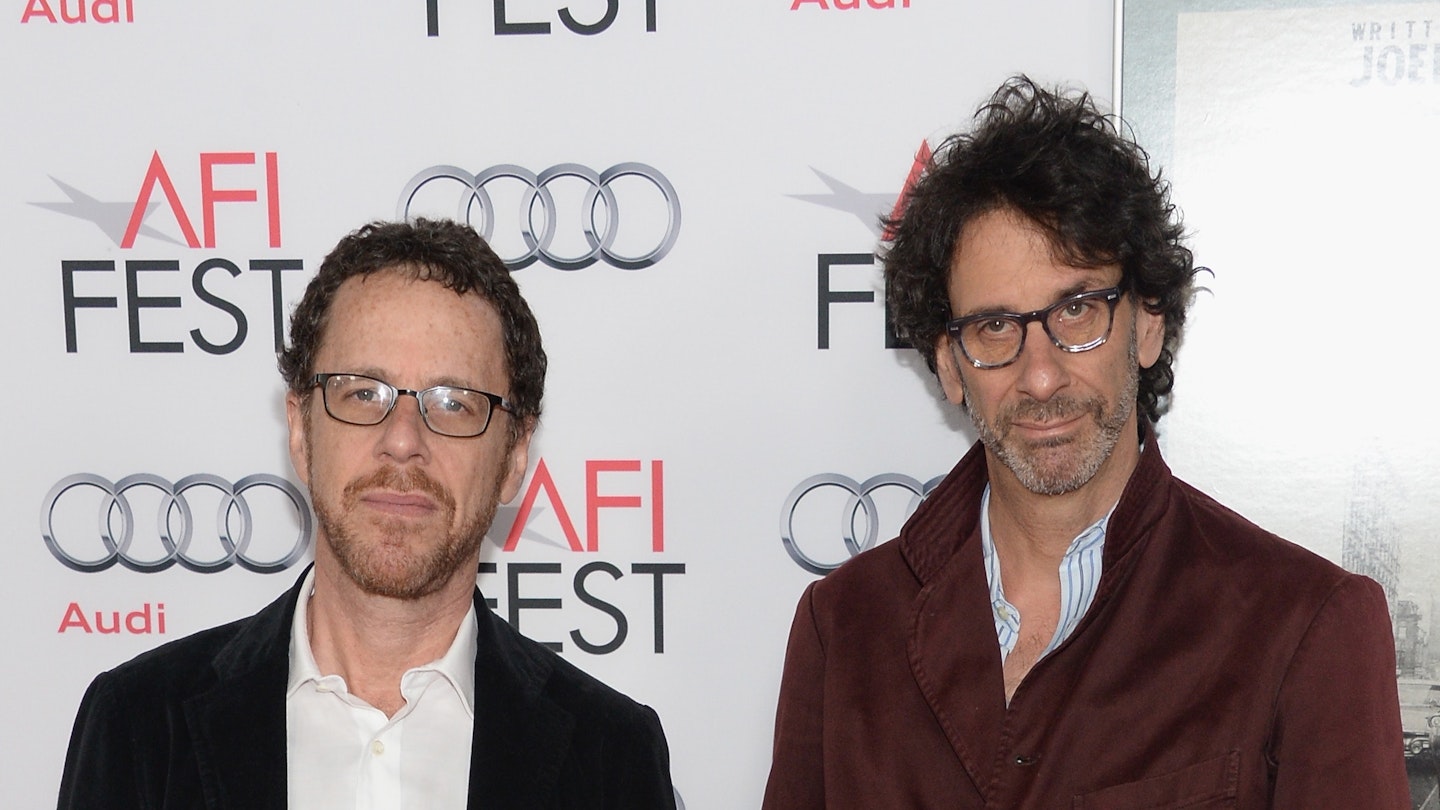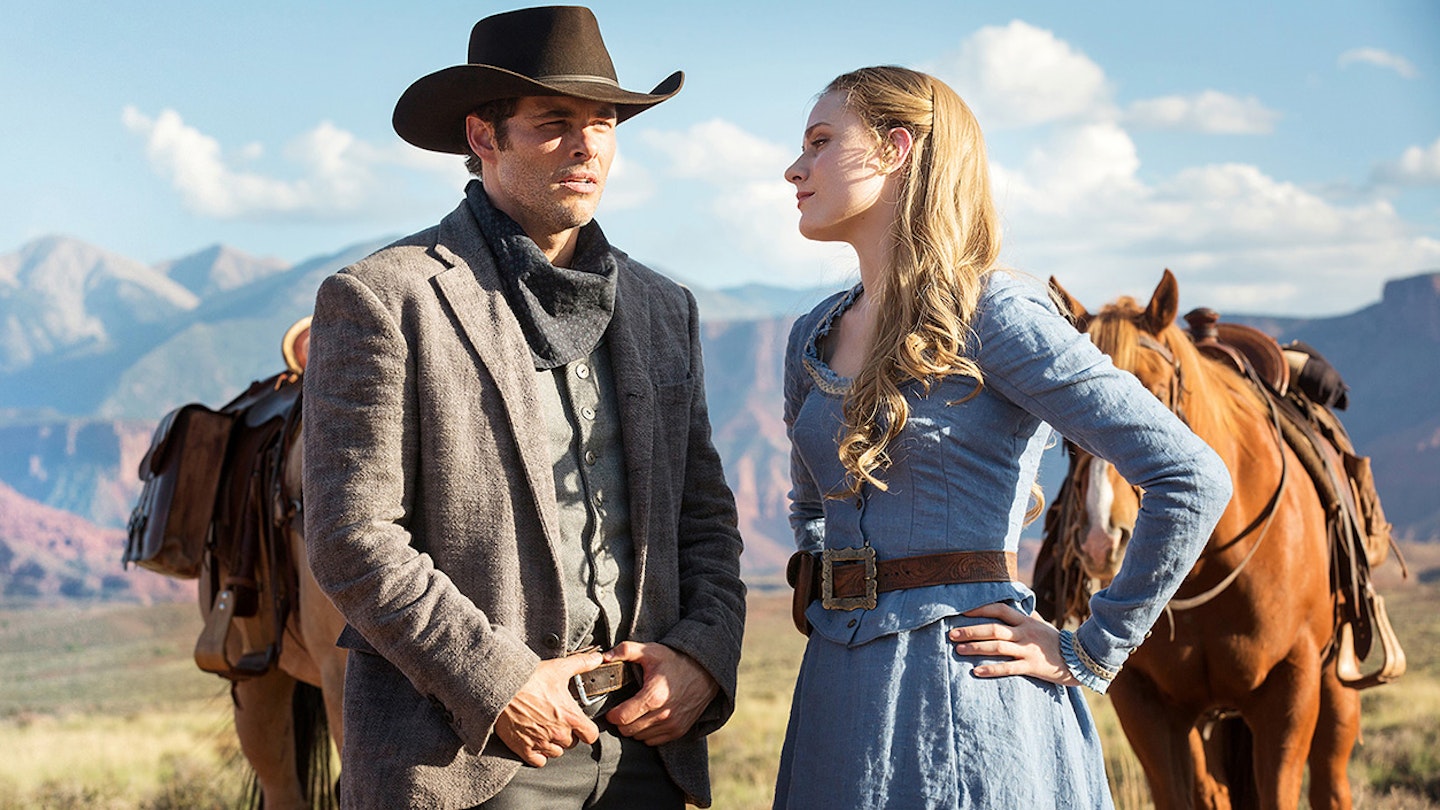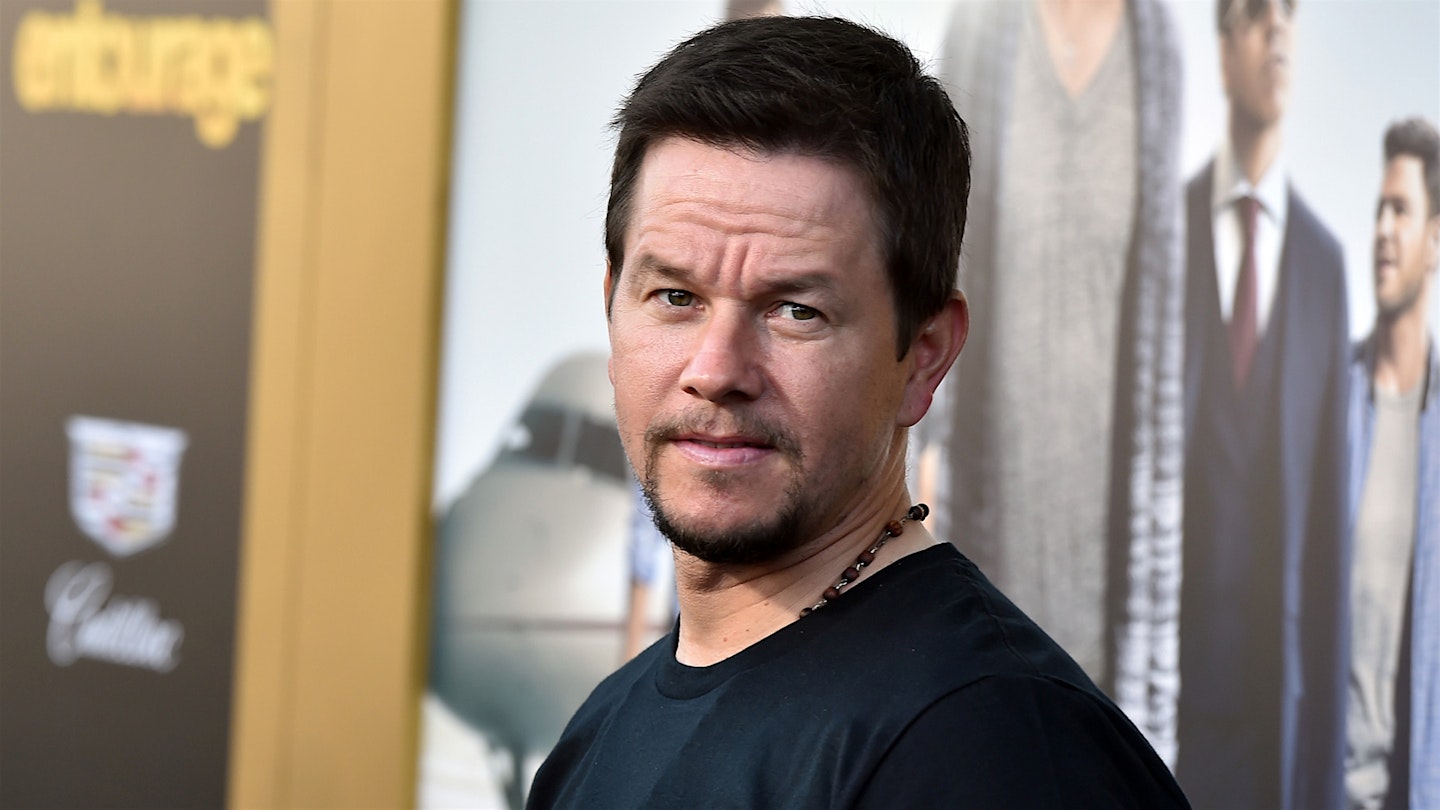Insurance lawyer James Donovan, who unexpectedly became a big hat in the Cold War, could best be described as the Tom Hanks type. You know, the stalwart American: smart, decent, morally courageous, a brilliant man who plays the fool, with a smile for every kind of weather. When stirred, and this absorbing account of his exploits does plenty of stirring, that smile turns to steel. He is Atticus Finch attempting George Smiley, a straight shooter stalking a land of riddles. Sensibly, then, Steven Spielberg has cast Tom Hanks to play him.
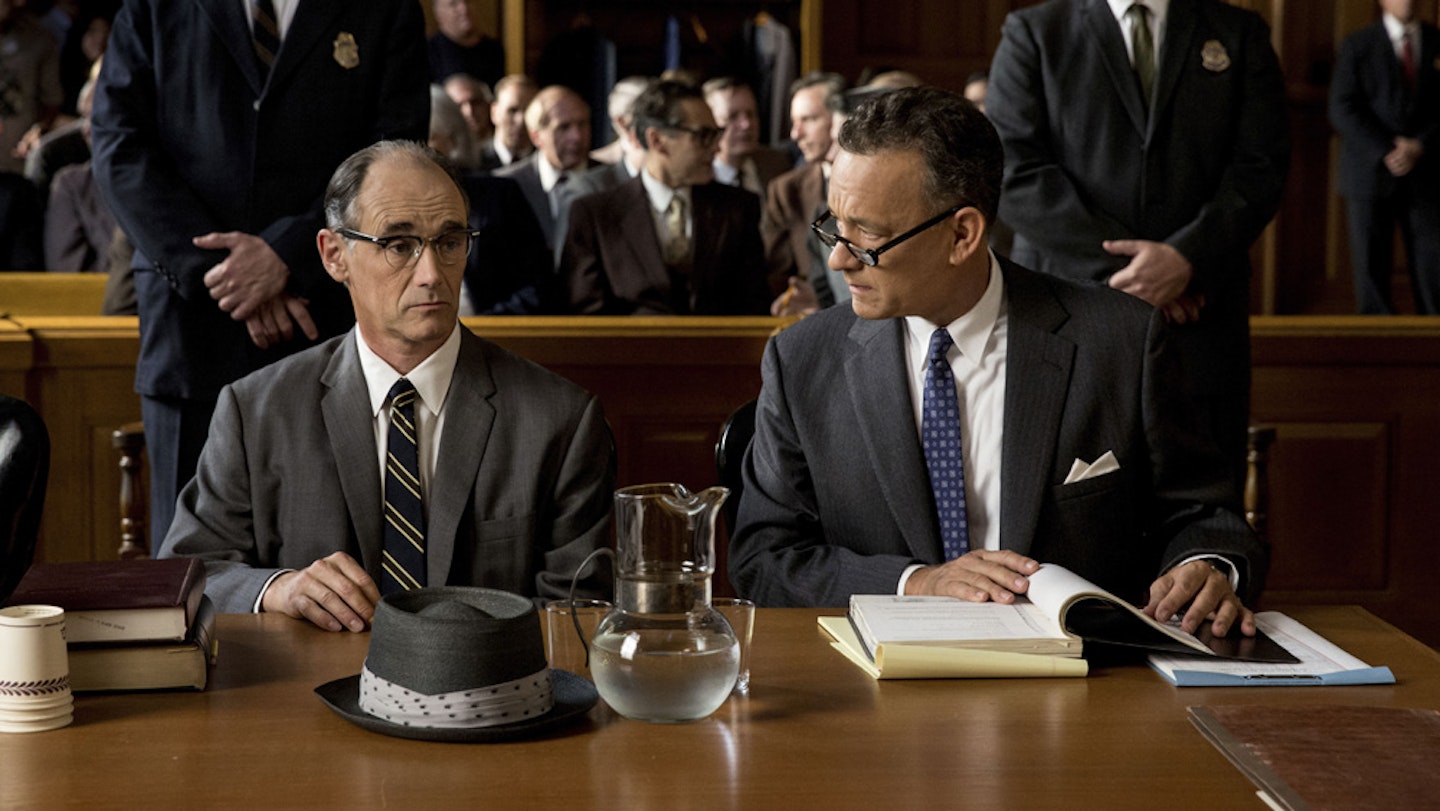
The pleasingly unpredictable latter-career Spielberg has chosen to follow his magnificent rumination on the greatness of Lincoln with another category-resistant historical reenactment. Genre-wise, Bridge Of Spies (a reference to the Glienicke Bridge, where spy-swaps are made in shivering pre-dawn Berlin) dances between courtroom drama and espionage thriller. There is plenty of speechifying too, stirring gusts of high-minded virtue: “American justice will be on trial!” It’s a meaty gumbo of Capra, Le Carré and Perry Mason. From Minority Report to Lincoln, another of Spielberg’s enquiries into the nature of American goodness as ordained
by the Constitution.
Hanks' star persona is the engine that drives the film forward.
Donovan’s particular corridor of history is not a natural fit for a movie. A HBO mini-series might have served its complexities better, but Spielberg, a film-man to his bones, keeps the mood deliberately old-fashioned. The look is polished and dreamlike, as if it came from the ’50s. See how the sun glints off New York cabs, and Berlin comes smeared in the statutory layer of dirty snow.
The first, shapelier half depicts Donovan’s attempts to bring “the rule of law” to his futile defence of Abel. In one of numerous ironies, it’s as much a show trial as anything the Soviets can throw. Donovan’s insistence on American values has him attacked as unpatriotic, but he is canny enough to foresee that Abel could be insurance against America’s own spying follies. Like a Jimmy Stewart or Gary Cooper, both embodiments of ’50s integrity, Hanks’ star persona is the engine that drives the film forward.
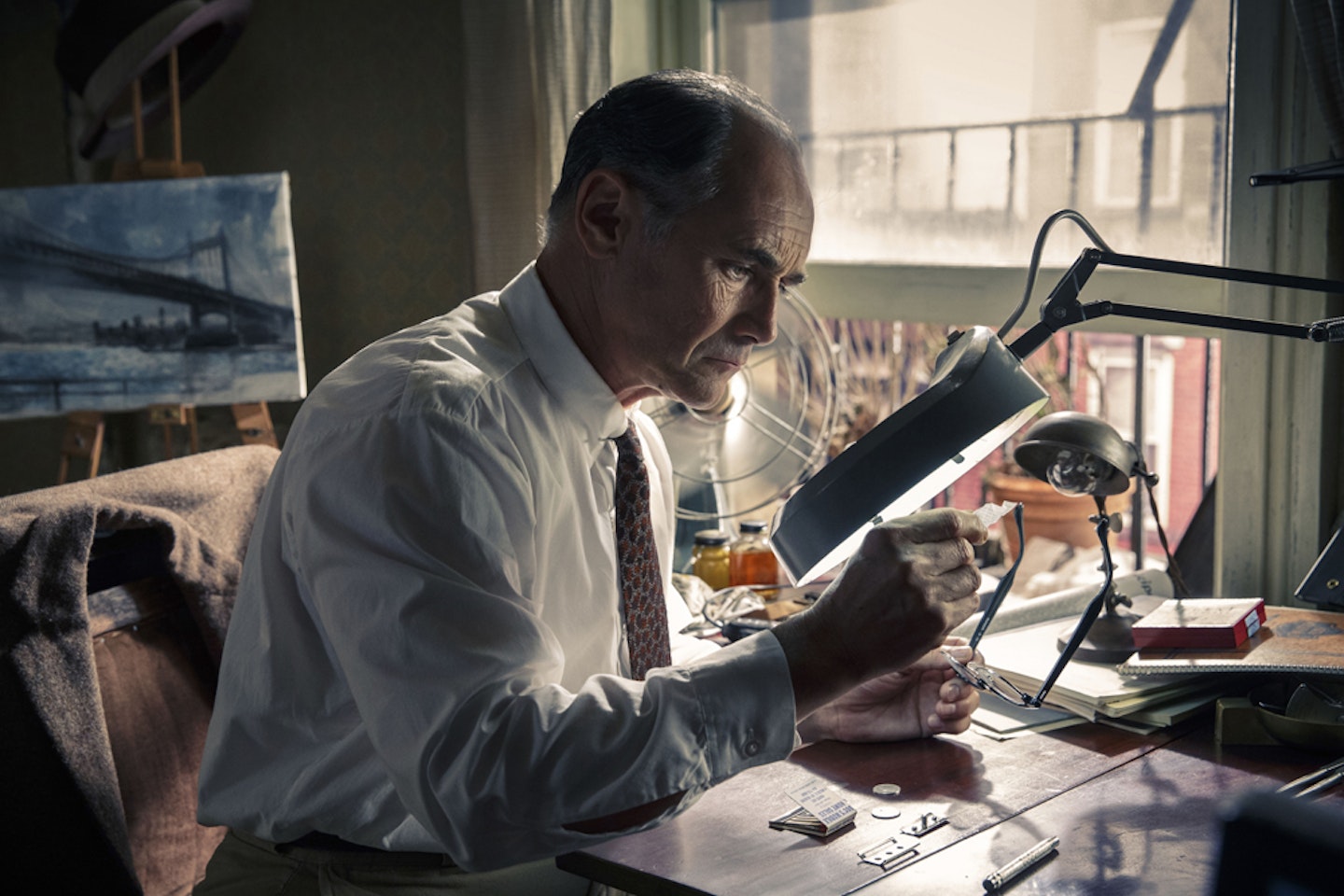
As the wiry, subdued Abel, Mark Rylance works the opposite trick. He is a chameleon, summoning sympathy for this strange, unprepossessing figure, as much a man of principal as his lawyer. Despite having witnessed his chicanery in a terrifically sustained arrest sequence, we root for Donovan to clear him.
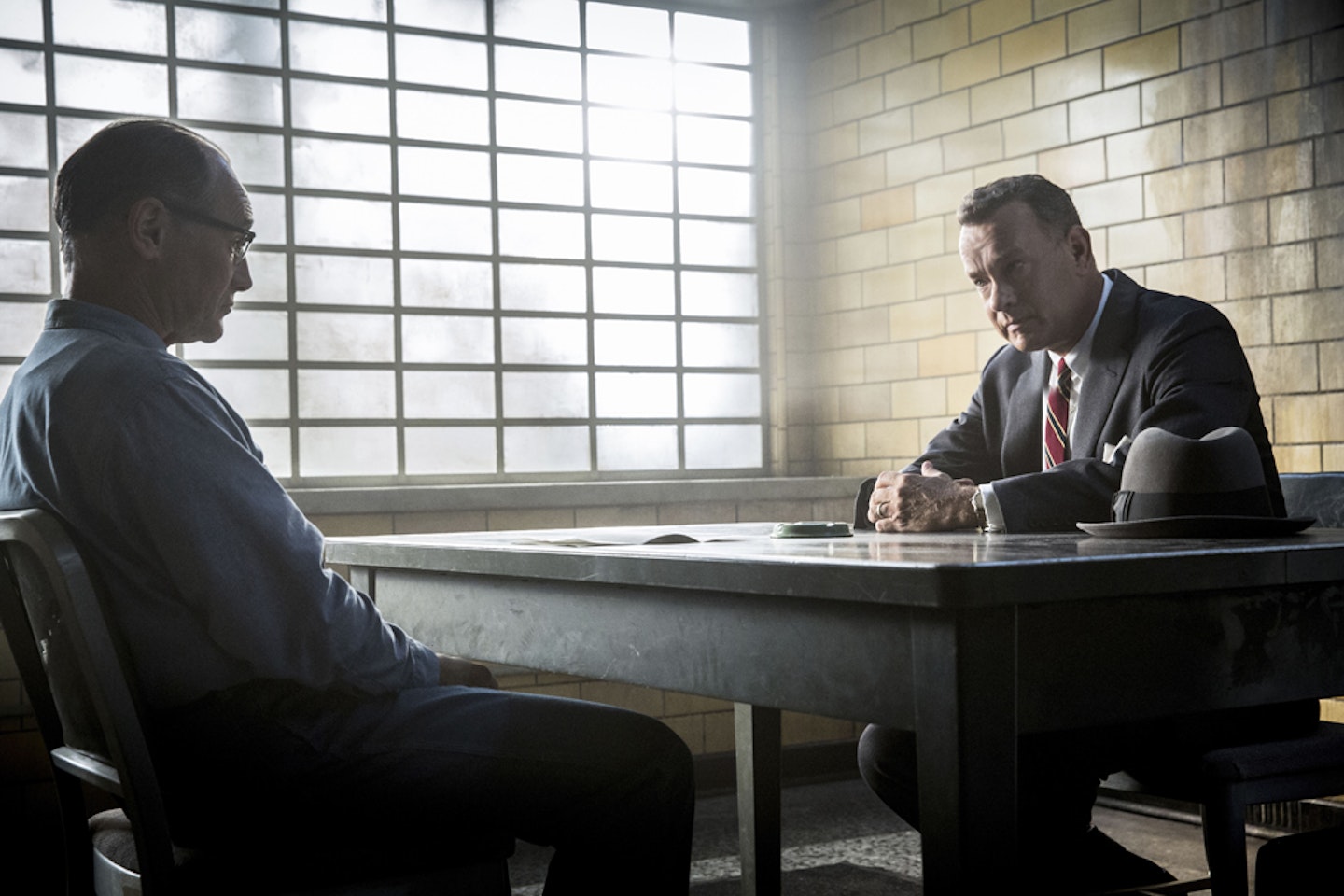
The second half of Donovan’s journey is less fluent (history can be a lousy screenwriter) but no less interesting. Bridged by Gary Powers’ U-2 spy plane going down in a hail of bright CGI, the film leaps to 1962. Donovan ‘unofficially’ crisscrosses the newly raised Berlin Wall, tensely negotiating the exchange of Powers for Abel with a gaggle of meddlesome agents and grumpy apparatchiks. Matching the grim, divided city, the tone becomes bleak and darkly comic.
Which brings us to those pesky Coen boys. Notably, Spielberg enrolled them to pep-up Matt Charman’s script. Without spoiling the mood, you detect their quirky voice everywhere, probing the realpolitik for absurdity, finding comedy in the madness of nuclear brinkmanship, and writing great scenes of Donovan tormenting CIA wonk and KGB clown alike. He’s nobility personified, and a bit of a windbag.
